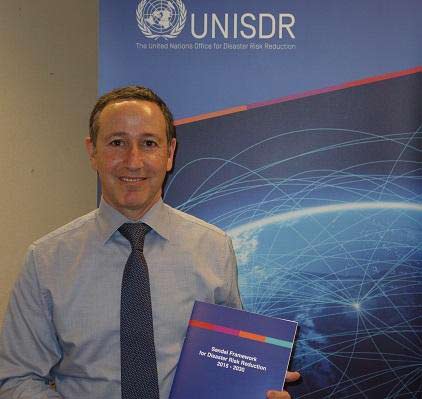New head for UN Disaster Risk Reduction
Dr Robert Glasser, an experienced leader and thinker on development issues, took up his new role in early January as head of the UN Office for Disaster Risk Reduction (UNISDR). He was appointed as Special Representative of the UN Secretary-General for Disaster Risk Reduction, succeeding Ms Margareta Wahlström who completed two terms at the end of 2015.

Dr Glasser said: “This is a very exciting time to be leading UNISDR as it enters a new era marked by the promotion and implementation of the Sendai Framework for Disaster Risk Reduction 2015-2030, which seeks substantial reductions in disaster losses including mortality, the numbers of persons affected by disasters, economic losses and damage to critical infrastructure such as schools and hospitals.
“Reducing disaster risk is core to the achievement of the post-2015 Development Agenda including the Sustainable Development Goals and the Paris Agreement on Climate Change.”
He continued: “We live in a world where 90 per cent of disasters are now climate-related so there needs to be significant integration of disaster risk reduction and climate change adaptation efforts to ensure that climate change is not seen as a risk driver in isolation from other risk factors such as poverty, rapid urbanisation, non-compliance with building codes, environmental degradation and population expansion in exposed areas such as flood plains and coastal areas.”
From 2008 to 2015, Dr Glasser was the Secretary General of CARE International, one of the world’s largest non-governmental humanitarian organisations, active in over 80 countries. From 2003-2007, Dr Glasser was the Chief Executive of CARE Australia. Prior to joining CARE, he was Assistant Director General at the Australian Agency for International Development.
Dr Glasser has also been a member of the board of the Global Call for Climate Action (GCCA), and was the inaugural Board Chairman of the CHS International Alliance, a new organisation resulting from the merger of People in Aid and the Humanitarian Accountability Partnership (HAP). He is an Australian national.